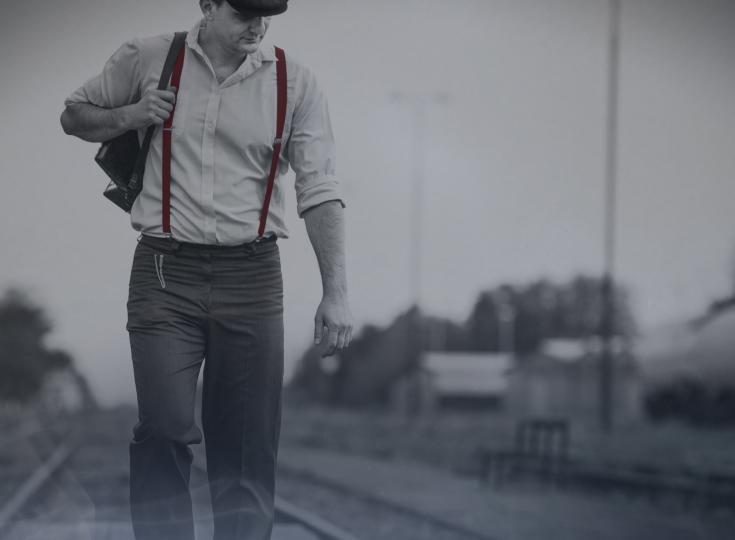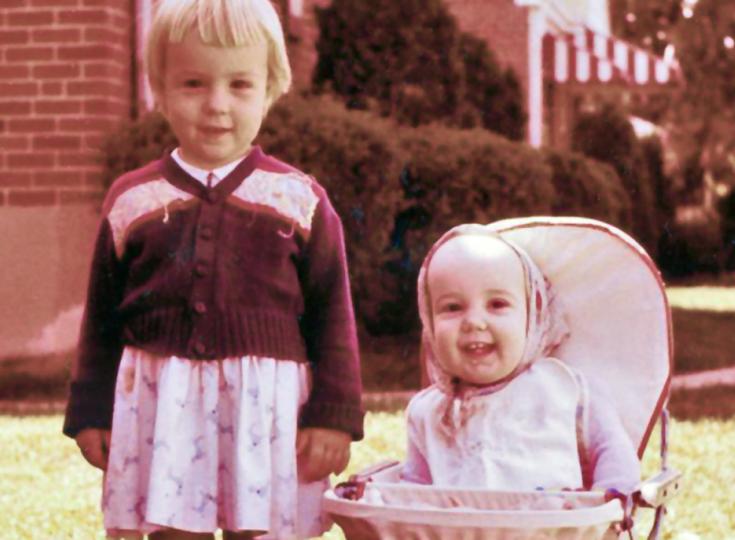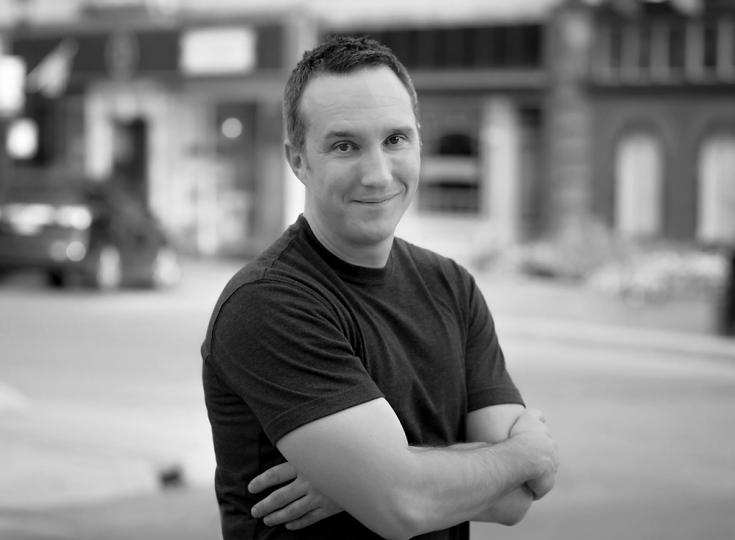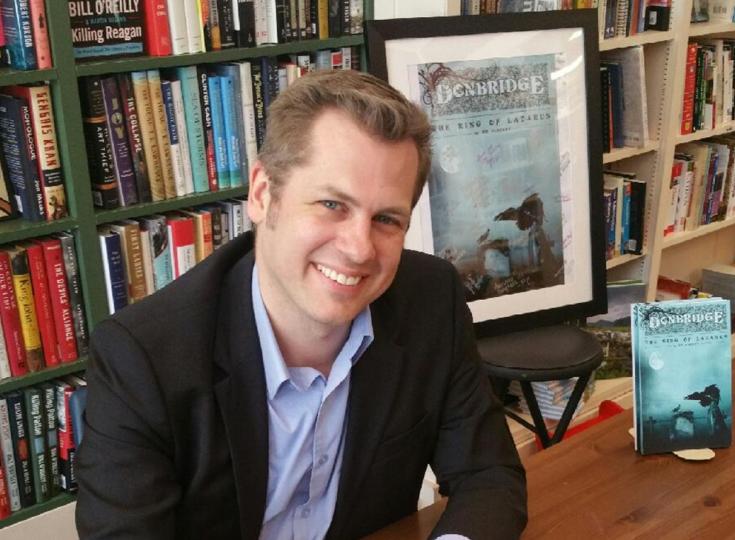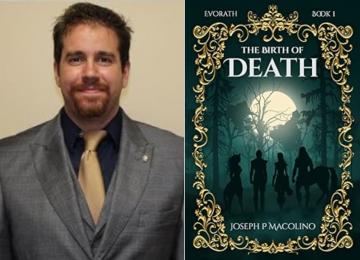Brennan McPherson - Imaginative Biblical Fiction with Heart-Pounding Plots
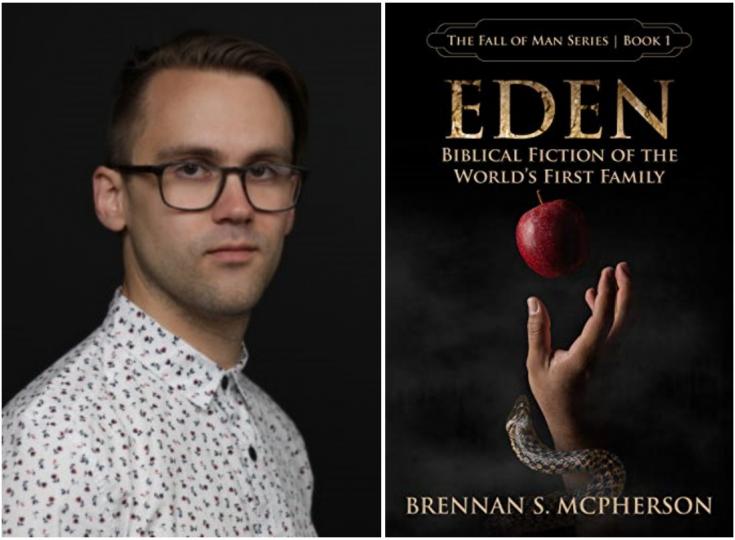
Brennan McPherson writes imaginative biblical fiction with heart-pounding plots and lyrical prose for readers who like to think biblically and feel deeply. As our Author of the Day, he tells us about his book, Eden.
Please give us a short introduction to what Eden is about.
Eden is the story of the beginning of life, as told by the guilt-wracked father of humanity, Adam.
What inspired you to write about the world's first family?
Mostly because it sounded cool. But also because it’s one of the most central stories in Christianity. It’s both the origin point, and also an arrow pointing toward the heart of the crucifixion and resurrection. All these symbols are embedded into this earliest story, and even predicted in it.
Why did you pick the year 641 as the starting point for your story?
It goes back to the lineages. The first recorded prophet, according to the lineages in the Bible, was Enoch, a descendant of Seth (Adam's third named son). A prophet was someone who heard directly from God and experienced an unusual level of intimacy with him, just like Adam spoke and walked with God in Eden (an experience he lost the ability to enjoy after choosing evil). Enoch and Adam would have been the only two men alive who shared intimate knowledge of God’s person. No one else (after Eve died) could understand Adam’s grief, remorse, and pain over what he lost. Neither could anyone speak with the same authority to God on his behalf besides Enoch. The year 641 would have been toward the beginning of Enoch’s adult years, and so Enoch became the audience for Adam telling his life story.
Tell us more about Eve. What makes her tick?
In the beginning, she longs to experience the world. She’s curious, intelligent, and fiery. After they choose to betray their Father (God), and break the world, her most central desire is to return to life in Eden. However, it’s not primarily the place, but the state and the person of God himself, who physically rested with them in Eden as their literal first father.
Many confuse the important part of heaven in Christianity as “streets of gold,” or cherubs playing harps on clouds while some guy eats endless pie. But the Christian understanding of the after-life is a physical new earth with a deathless body freed from the desire for evil, where we’ll live forever in the presence of God. A full, creative life in close relationship with him and with each other. Basically, the after-life for Christians is a return to the Eden state, where there was food, art, jobs, and a cycle of rest and work, yet no greed, no hatred, no violence, no cheating, no desire to lie, etc. Picture having a life where you were never dissatisfied, yet suddenly you’re thrust out, naked, alone, shivering with dark desires and bitter pain. Yet God promised them that through their line of children would come someone who would undo their mistakes. That is the driving hope for both Adam and Eve, and the hope for every Christian around the world—that one day everything will be made new because of the sacrifice and resurrection of Jesus.
Of course, Eve’s desire plays out in different ways in her life because she’s a stronger personality than Adam. And when their attempts to fix everything go awry, frustration builds, and at times boils over in shocking ways. She’s my favorite character in the book, and to me, at least, the most relatable. She’s pretty difficult, but I don’t think I would have felt very different.
Why is your Adam desperate to confess his dark secrets?
For centuries, Adam kept the depth of his sin secret from his family. But after Eve passes, he’s haunted by the memories of how he ruined her, ruined his children, ruined the world. He knows the only way to fix it is to confess the full depth of what he did. But can he bear it? When he hears that Enoch (the first prophet) is trying to record a history of the world for future generations – so that they never forget about their origins in Eden at the hands of God – Adam sees a way to both free himself of guilt and bargain for a chance to speak with the father (God) he betrayed.
Why biblical fiction? What drew you to the genre?
There’s no book I love more than the Bible. For me, it’s like drinking water. I’m not a big historical fiction reader. Most of the books I read tend to be fantasy (the “thinky” kind). I wanted to write adaptations of these stories that went far beyond simply regurgitating what’s already there. I wanted to bring to life the deep, symbolic meaning inherent in the Biblical text with fresh plots and fiery emotions. When I study the Bible, I see both beautiful poetic meaning and striking ambiguity. I write these stories in ways that align 100% with what’s written and respect the source material, yet are thought-provoking and imaginative. The ambiguity gives plenty latitude to weave in lovely surprises.
Is there an underlying message you wish to relay about basic human nature through your characters?
Yes. The Bible is a unique religious book in that all its founding figures are intensely flawed—yet the flaws themselves aren’t praised. Adam broke the world. Noah was a drunkard. Abram lied and let his wife sleep with the Pharaoh. Moses was a murderer. Jacob was a thief and a liar. David was a murderer and adulterer. And through very broken people like these, Jesus traces his lineage. The fundamental message about human nature is that men are broken, yet there’s hope through Jesus’ perfect life and sacrifice for our sake. I heard an older man once say, “God strikes straight blows with crooked sticks.” That gives me hope for myself.
Readers say this is a very emotional read - at times almost painful. Why did you take this approach?
When you read the Bible, you see passionate words written thousands of years ago by people who were intensely human, flawed, and grappling with some of the darkest events imaginable. The reason why the Bible is relevant today is because it grapples with the realities of life in a way no other book does. I never want my writing to shy away from dealing with reality.
When working on a novel, how do you immerse yourself in the main characters' lives?
I think real hard.
What are you working on right now?
The next book in the series, which is a book on Abram.
Where can our readers discover more of your work or interact with you?
I write a weekly devotional at my website, brennanmcpherson.com. Sign up for my email list there – it’s the best way to stay in touch and get new free content.
